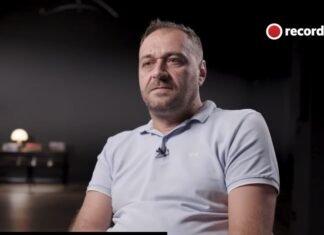Hot News
In a recent turn of events, Digi24 hosted a forum that appeared to be a one-man show as Nicușor Dan found himself alone at the "debate." Meanwhile, George Simion created quite a stir on social media. He took to Facebook to release a video featuring Digi24 journalists who claimed they had been filmed without their consent. Their remarks have raised eyebrows and sparked discussions about media ethics and transparency.
This incident highlights the growing tensions in the political landscape, particularly in how various figures engage with the media. Nicușor Dan, the mayor of Bucharest, was expected to participate in a public debate aimed at addressing pressing issues facing the city. However, his solitary presence raised questions about the inclusivity of the forum, leaving many to wonder where the other key political figures were during this crucial dialogue.
On the other side, George Simion’s actions illustrate a different approach to political discourse. By sharing the video of the journalists, Simion aims to expose what he perceives as a lack of fairness and transparency in media coverage of political events. In the video, he expressed his frustration with how politicians are sometimes treated by the press. His comment, "Do you want to invite me to humiliate me and boost your ratings?" captures his sentiment perfectly, reflecting a growing distrust of media outlets among some political leaders and their supporters.
The juxtaposition of Nicușor Dan’s quiet presence at the debate and George Simion’s outspoken social media campaign sheds light on the current climate in Romanian politics. It’s a reminder that public perception and media representation play significant roles in shaping political narratives. As debates unfold, the question of who gets to speak and who is excluded remains a hot topic.
This situation raises important questions about the responsibilities of both politicians and journalists. How should political figures engage with the media to foster a constructive dialogue? Conversely, what ethical standards must journalists uphold to ensure fair and accurate reporting?
Politicians often face scrutiny regarding their public appearances—and in a polarized environment, every interaction becomes a matter of public interest. While live debates provide a platform for discussing pressing issues, they can also devolve into opportunities for ratings rather than constructive conversations.
Furthermore, the impact of social media cannot be overlooked in this scenario. Platforms like Facebook allow political figures to share their thoughts and reactions instantly, enabling them to shape public narratives directly. George Simion’s video not only served to defend his position but also to rally support from his followers, demonstrating how powerful these tools can be in modern political discourse.
Looking ahead, the events surrounding the Digi24 debate and George Simion’s revelations may set the tone for future interactions between politicians and journalists in Romania. The outcome of such debates can influence public trust in both the media and political institutions, making it critical for all parties involved to evaluate their approaches to communication.
In conclusion, as the political landscape continues to evolve, the relationship between public figures and the media will remain a focal point of interest for both supporters and critics. The coming days will reveal how these dynamics play out and whether constructive dialogue can thrive in such a charged environment.






